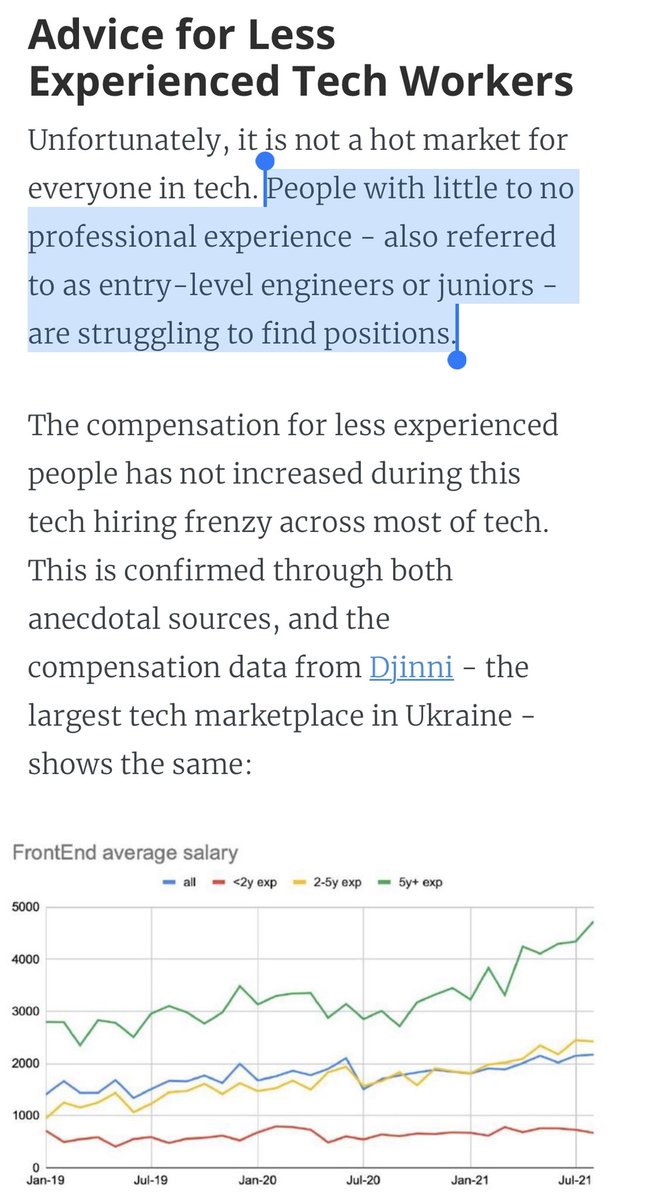
The Pragmatic Engineer Test is a 12-question "challenge" I created to get a sense of great engineering cultures.
With over 200 companies filling it out, 30% of them score a perfect 12 /12 (!!) and 68% at least 10/12.
See the test, and the list here: blog.pragmaticengineer.com/pragmatic-engi…


With over 200 companies filling it out, 30% of them score a perfect 12 /12 (!!) and 68% at least 10/12.
See the test, and the list here: blog.pragmaticengineer.com/pragmatic-engi…



Gotten a reachout to remove the equity one:
"We're profitable w non-PE backing. Makes no sense to issue stock. The question is irrelevant."
"Ok. Do you give $$$ bonuses?"
"No: we need to stay profitable."
"I understand. But clearly you offer no upside vs VC-backed companies."
"We're profitable w non-PE backing. Makes no sense to issue stock. The question is irrelevant."
"Ok. Do you give $$$ bonuses?"
"No: we need to stay profitable."
"I understand. But clearly you offer no upside vs VC-backed companies."
Working at profitable, non-VC-backed companies has many upsides. Good WLB, no focus on growing(as long as the business stays profitable).
But let's acknowledge these places don't offer a way to become an owner in an asset that could, one day, sell for $$$ blog.pragmaticengineer.com/equity-for-sof…
But let's acknowledge these places don't offer a way to become an owner in an asset that could, one day, sell for $$$ blog.pragmaticengineer.com/equity-for-sof…
In what seems ironic, a startup founder in Germany who scored 7/12 (no equity, no training budget, no CI and a few others) commented:
"Excited to see the results. I believe we're one of the better eng cultures in the region: it will be good to validate"
Sorry buddy: you're not.
"Excited to see the results. I believe we're one of the better eng cultures in the region: it will be good to validate"
Sorry buddy: you're not.
• • •
Missing some Tweet in this thread? You can try to
force a refresh








